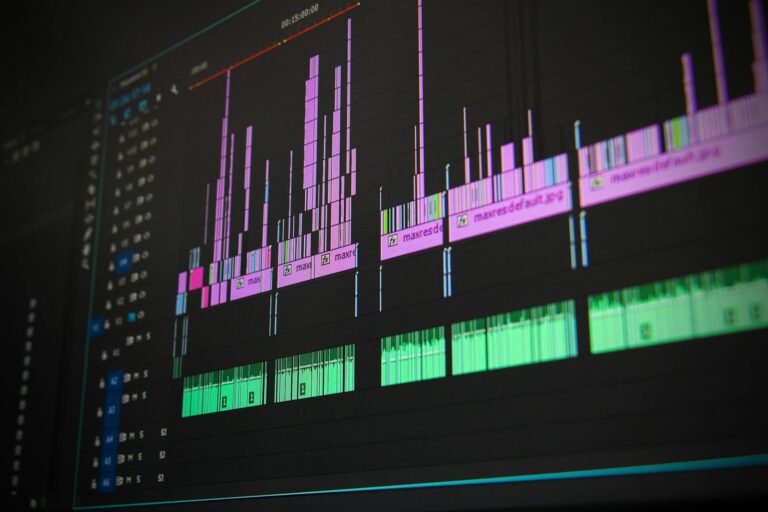Imagine a world where your bank predicts financial risks before they happen, your virtual assistant invests money for you, and fraud is detected before a hacker even attempts to steal your data. This isn’t science fiction—it’s the future of AI in banking and personal finance.
Artificial Intelligence (AI) is already transforming the financial industry, making banking smarter, faster, and more secure. From chatbots handling customer service to AI-driven investment advisors, the revolution is well underway. But what does this mean for you? How will AI impact your financial future? Let’s explore the exciting developments in AI that are shaping the way we manage money in the USA and UK.
AI’s Growing Role in Banking & Finance
AI is more than just a buzzword in finance—it’s becoming the backbone of modern banking. Here’s how it’s revolutionizing the industry:
1. AI-Powered Customer Service & Chatbots
Gone are the days of long wait times on customer support calls. AI-driven chatbots like Bank of America’s Erica and HSBC’s Amy are handling millions of customer inquiries, providing instant responses and improving customer satisfaction.
Why this matters:
- 24/7 availability: AI-powered assistants never sleep, making banking support available anytime.
- Faster resolutions: Chatbots can handle routine tasks like balance inquiries, transaction history, and even loan applications.
- Personalized recommendations: AI analyzes past transactions to offer tailored financial advice.
2. Fraud Detection & Cybersecurity
With cyber threats on the rise, AI is playing a crucial role in detecting and preventing fraud. Banks like JPMorgan Chase and Barclays use AI algorithms to analyze transaction patterns and identify suspicious activities in real-time.
How AI enhances security:
- Real-time fraud alerts: AI detects unusual spending behaviors and flags potential fraud instantly.
- Biometric authentication: AI-driven facial recognition and fingerprint scanning make banking more secure.
- Adaptive learning: AI continuously improves its fraud detection capabilities by analyzing new threats.
3. Personalized Financial Planning
AI-driven financial advisors, or robo-advisors, are making wealth management accessible to everyone. Platforms like Wealthfront, Betterment (USA), and Nutmeg (UK) use AI to offer investment advice tailored to individual financial goals.
Why people love AI financial advisors:
- Low fees: Robo-advisors cost significantly less than human financial planners.
- Smart investing: AI optimizes portfolios based on market trends and risk appetite.
- Hands-free approach: Investors can automate their investments without constant monitoring.
4. AI in Loan Approvals & Credit Scoring
Traditional loan approval processes rely on static credit scores, but AI is changing the game. Companies like Upstart and ZestFinance use AI to assess borrowers’ creditworthiness based on alternative data such as employment history, spending patterns, and even social media behavior.
How this benefits consumers:
- More accessible credit: AI allows banks to lend to people with limited credit history.
- Faster approvals: AI speeds up the loan approval process, reducing wait times from weeks to minutes.
- Fairer evaluations: AI eliminates biases that traditional scoring methods may have.
5. AI-Powered Expense Management & Budgeting
Managing money has never been easier with AI-driven budgeting tools like Mint, YNAB (You Need a Budget), and Cleo (UK). These apps analyze your spending habits and provide insights to help you save more effectively.
How AI helps with budgeting:
- Automatic categorization: AI sorts your expenses into categories like rent, groceries, and entertainment.
- Smart saving recommendations: AI suggests saving strategies based on your income and expenses.
- Spending alerts: AI notifies you if you’re about to overspend in a specific category.
The Future of AI in Banking & Personal Finance
As AI technology advances, we can expect even more groundbreaking developments in banking and personal finance. Here are some predictions for the near future:
1. Hyper-Personalized Banking Experience
Banks will move beyond traditional banking models to offer highly personalized financial services. AI will analyze real-time financial data to provide tailored recommendations, such as:
- Customized interest rates: Personalized mortgage and loan rates based on spending behavior.
- Predictive financial planning: AI will forecast future expenses and suggest ways to optimize savings.
- Smart notifications: Instead of generic alerts, AI will provide insights like, “Based on your spending, you can afford a vacation next summer.”
2. AI-Driven Voice Banking
Virtual assistants like Amazon Alexa, Google Assistant, and Siri are already making financial transactions possible through voice commands. In the future, banks may fully integrate AI-driven voice banking, allowing customers to:
- Check balances and transfer money using voice commands.
- Set up automatic bill payments without using a screen.
- Receive AI-generated spending reports via smart speakers.
3. AI in Cryptocurrency & Decentralized Finance (DeFi)
With the rise of cryptocurrency and DeFi platforms, AI is being used to analyze blockchain transactions, predict price movements, and detect fraudulent crypto activities. AI tools like CryptoHawk and SingularityNET are already making crypto trading smarter and more efficient.
4. AI-Powered Autonomous Trading
Algorithmic trading powered by AI is revolutionizing stock market investments. Hedge funds and individual investors are using AI-driven trading bots that:
- Analyze global financial trends in real-time.
- Execute trades at optimal times for maximum profit.
- Reduce human emotions from investment decisions.
5. Ethical AI & Regulatory Challenges
As AI continues to shape banking, ethical concerns and regulatory challenges will emerge. Governments in the USA and UK are already working on AI regulations to ensure fair lending practices, unbiased credit scoring, and secure data handling.
Key concerns:
- Bias in AI algorithms: AI must be trained on diverse datasets to prevent discrimination.
- Privacy issues: Stricter laws on how banks use AI to analyze personal financial data.
- Transparency: Banks will need to explain AI-driven decisions to customers more clearly.
Final Thoughts: How Should You Prepare?
The future of AI in banking and personal finance is exciting, but how can you make the most of these advancements?
✅ Stay informed – Keep up with AI-driven banking trends and new financial tools.
✅ Use AI-powered financial apps – Take advantage of budgeting apps, robo-advisors, and fraud detection tools.
✅ Be cautious with data privacy – Understand how your financial data is used and choose secure banking options.
✅ Embrace automation – Automate savings and investments to grow your wealth effortlessly.
AI is reshaping the financial world, and those who adapt early will benefit the most. Are you ready for the AI-powered future of banking? Let’s discuss in the comments below!



